Top 8 Foods You Should Eat Every Day To Improve Memory

Eating a nutritious diet is necessary for overall health and well-being, but it's particularly important for preventing cognitive decline and supporting memory. "There are thousands of species or strains of bacteria that live in your gut. When they're balanced and happy, that is good for the brain," Rudolph E. Tanzi, PhD, tells Mass General Brigham. "Once you get away from the processed junk foods and eat a healthy diet that's high in fiber and antioxidants, you will suddenly feel more alert, aware, and focused, with cognitive function at a higher level." Here are key foods that help support brain health.
Salmon
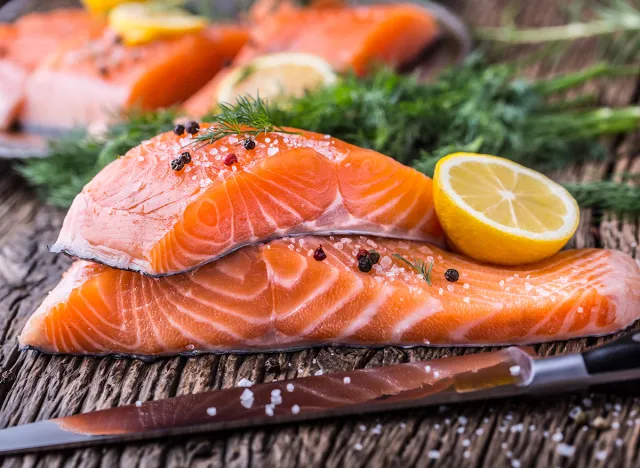
Salmon is one of the best things you can eat for brain health. "Fatty fish, like salmon, is high in omega-3 fatty acids that are critical for brain development and function," according to Northwestern Medicine. "Additionally, these fatty acids have been found to lower the risk for heart disease, depression, and arthritis. Other types of fish that are good sources of omega-3 fatty acids are mackerel, herring, lake trout, and tuna."
Blueberries

Blueberries are another brain-friendly superfood. "While all berries are good for brain health, the blueberry is crowned as king and could be considered America's first superfood," says Northwestern Medicine. "Blueberries are bursting with antioxidants, specifically flavonoids. These antioxidants stimulate the flow of blood and oxygen in the brain, resulting in boosted concentration. A study even suggests that they could improve brain function in those who have mild cognitive impairment."
RELATED: 8 Foods I Will Never Eat Again After Losing 110 Pounds
Dark Leafy Greens
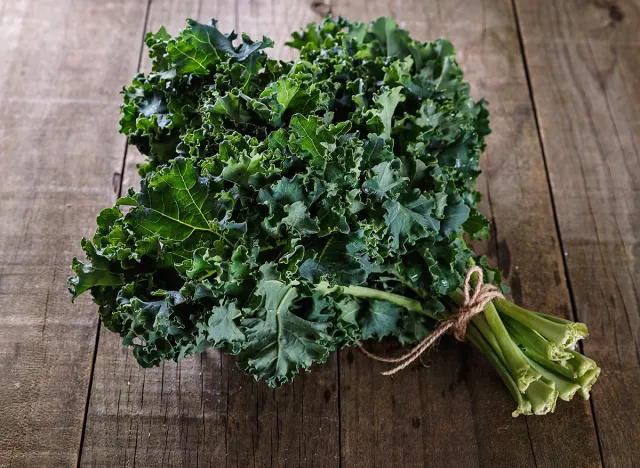
Dark leafy greens are great for brain health and memory. "Greens such as kale, spinach and broccoli are high in vitamin E as well as folate. Vitamin E helps protect cell membranes against free radicals," says UnityPoint Health. "Free radicals are unstable molecules that attack cells within our body. Some causes of free radicals include stress, pollution, radiation and processed food. Folate is also found in dark greens, and helps with normal brain development."
Avocados
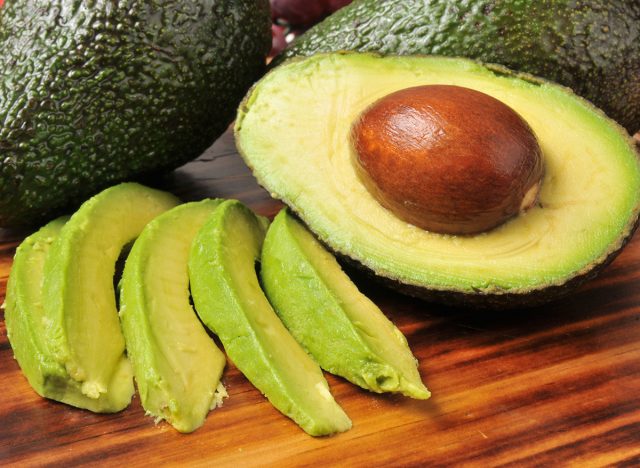
Avocados are not only delicious but offer many brain health benefits. "They're rich and creamy and filled with omega fatty acids as well as vitamin E," says UnityPoint Health. "Omega fatty acids are essential for cell growth and brain development, and vitamin E helps protect cell membranes from free radicals. Vitamin E may also slow progression of degenerative diseases, such as Alzheimer's, through its protection, maintenance and repair of cells within the brain."
Walnuts
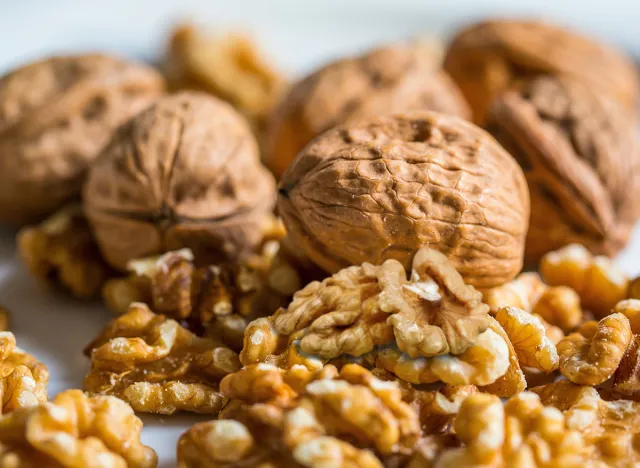
Walnuts are beneficial for brain health, experts say. "Walnuts are rich in alpha-linolenic acid, a plant-based omega-3 fatty acid," says Kathy Beerman, PhD, via the American Society for Nutrition. "Walnuts also possess more polyphenolic compounds than any other type of nut. Both omega-3 fatty acids and polyphenols are considered critical brain foods that may counteract oxidative stress and inflammation, two drivers of cognitive decline. Hence, walnuts could beneficially influence cognition."
Legumes
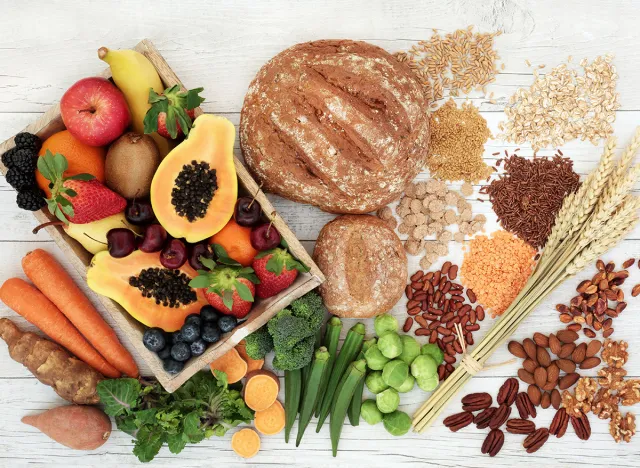
Legumes are full of B vitamins, which are very good for brain health. "They're especially valuable to your brain and nervous system, helping make the neurotransmitters that pass signals between nerves," integrative medicine physician Irina Todorov, MD, tells Cleveland Clinic.
RELATED: How to Burn 800 Calories Per Day Without Exercising, According to a Neuroscientist
Tea and Coffee

Enjoy your morning caffeine hit knowing it could be helping to improve your memory. "The caffeine in your morning cup of coffee or tea might offer more than just a short-term concentration boost," says Harvard Health. "In a study published in The Journal of Nutrition, participants with higher caffeine consumption scored better on tests of mental function. Caffeine might also help solidify new memories, according to other research."
RELATED: 10 Weight Loss Secrets French Girls Don't Want You to Know
Eggs

Eggs are packed with brain-friendly nutrients. "As far as brain health goes, egg yolks are a good source of choline, which is associated with reducing inflammation and promoting brain function, like maintaining memory and communications between brain cells," according to Northwestern Medicine. "Eggs are also high in tryptophan, an amino acid that's a building block of serotonin — the 'happiness' molecule – a side effect that is sure to put a smile on your face." And if you enjoyed this article, take advantage of these 15 Quick Ways to Lose Body Fat Percentage in a Week.




